Just In
- 39 min ago

- 1 hr ago

- 2 hrs ago

- 10 hrs ago

Don't Miss
- News
 Sonia Gandhi Shed Tears For Terrorists Killed In Batla Encounter: BJP Chief Nadda
Sonia Gandhi Shed Tears For Terrorists Killed In Batla Encounter: BJP Chief Nadda - Finance
 Trade Setup: Nifty Continues Winning Streak Ahead of April F&O Expiry, Q4 Earnings In Focus
Trade Setup: Nifty Continues Winning Streak Ahead of April F&O Expiry, Q4 Earnings In Focus - Sports
 T20 World Cup 2024: No Hardik, Pant or Samson in Ambati Rayudu's India Squad for World Cup
T20 World Cup 2024: No Hardik, Pant or Samson in Ambati Rayudu's India Squad for World Cup - Movies
 Varshangalkku Shesham Box Office Collection Day 15 Prediction: Pranav & Dhyan's Movie Faces Continued Decline
Varshangalkku Shesham Box Office Collection Day 15 Prediction: Pranav & Dhyan's Movie Faces Continued Decline - Education
 JEE Main Result 2024 Out, Telangana's 15 Toppers Shine, Check Statewise List of 56 Candidates with Perfect 100
JEE Main Result 2024 Out, Telangana's 15 Toppers Shine, Check Statewise List of 56 Candidates with Perfect 100 - Travel
 Escape to Kalimpong, Gangtok, and Darjeeling with IRCTC's Tour Package; Check Itinerary
Escape to Kalimpong, Gangtok, and Darjeeling with IRCTC's Tour Package; Check Itinerary - Technology
 OPPO Find X7 Ultra Camera Deep-Dive: Pushing the Boundaries of Photography on a Smartphone
OPPO Find X7 Ultra Camera Deep-Dive: Pushing the Boundaries of Photography on a Smartphone - Automobiles
 Aston Martin Vantage Launched In India At Rs 3.99 Crore
Aston Martin Vantage Launched In India At Rs 3.99 Crore
World Patient Safety Day 2020: How To Take Care Of A Patient With Suspected Or Confirmed COVID-19
Every year, on 17 September World Patient Safety Day is observed to increase global awareness about the importance of patient safety. The World Patient Safety Day 2020 theme is 'Health Worker Safety: A Priority for Patient Safety' and the slogan for the day is 'Safe health workers, Safe patients'.
According to the WHO, 4 out of 10 patients are harmed in the healthcare settings and 134 million adverse events are reported every year due to unsafe care in hospitals in low and middle-income countries, which causes 2.6 million deaths annually.
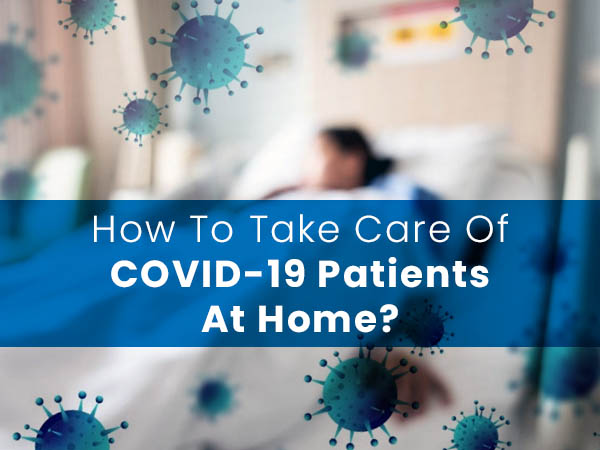
In the times of coronavirus, taking utmost care of COVID-19 patients is very important to ensure that they are safe by receiving timely treatment so that they can get recovered and reduce the spread of the disease. On World Patient Safety Day, we provide some guidelines on how to take care of a patient with suspected or confirmed COVID-19.
As of 28 March 2020, the confirmed cases for coronavirus (COVID-19) has reached 598,245 and the death toll has crossed 27,762. Seeing the drastic increase in the coronavirus cases, the Centres for Disease Control and Prevention (CDC) and World Health Organization (WHO) have issued guidelines on how to prepare individuals to respond to this public health threat.
Coronavirus has rapidly spread in India and has entered stage three, which is community transmission. During this time, it is important for the family members of a COVID-19 patient to take care of the patient and lower the spread of the disease.
How To Take Care Of A Patient With Suspected Or Confirmed COVID-19?
A COVID-19 patient with mild symptoms shouldn't necessarily be hospitalised until and unless the patient's health is deteriorating. Patients with only mild illness can be taken care of at home itself, considering as long as they are followed up by doctors and cared by family members.
The WHO suggests that patients with mild symptoms and without underlying health conditions, such as kidney failure, lung or heart disease and immunocompromising conditions can be taken care of at home.
In cases like these, health care workers should conduct an assessment to check whether the home environment is suitable for providing care to the patient or not. Health care workers should also assess whether the patient and the family are capable of maintaining the precautionary measures that will be recommended as part of the home care isolation. These include hand hygiene, respiratory hygiene, environmental cleaning and limiting movement around or from the house.
If one of your family members has been suspected or confirmed with COVID-19, you will have many questions on your mind concerning the condition and how to avoid the spread of illness.

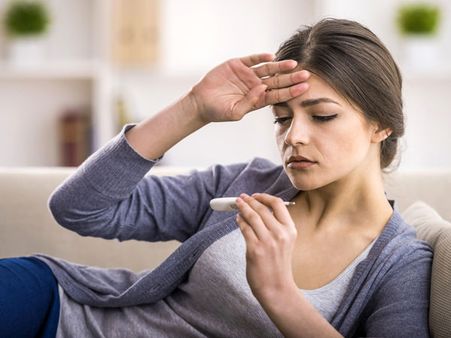
Q. If I am sick with COVID-19, what should I do?
A. If you are sick with COVID-19, monitoring your symptoms is of utmost importance. You should check your body temperature daily and seek medical attention immediately if your illness is deteriorating.

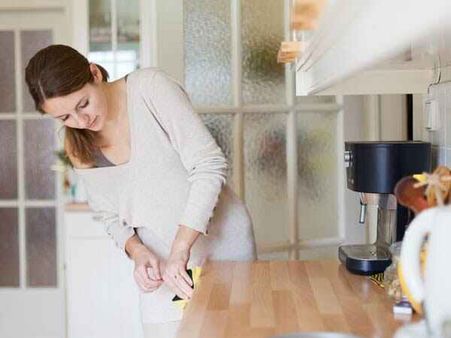
Q. I live with a person who is sick with COVID-19. What do I need to do?
A. Clean all surfaces that are touched, such as doorknobs, countertops, phones, toilets, bathroom fixtures, tablets, keyboards and bedside tables every day. Clean surfaces that may have bodily fluids or blood on them and wash your clothes thoroughly.

Q. How do I care for a person who is sick with COVID-19?
A. If you are taking care of someone with suspected or confirmed coronavirus disease, there are things you need to do to avoid getting sick yourself and to keep the rest of the household germ-free.
- People who are sick should be isolated at home.
- Keep the patient in a room which is well-ventilated.
- Limit the movement of the patient in the house and minimise shared spaces.
- Clean the patient's clothes, bed linen, hand and bath towels with laundry soap or detergent and water or machine wash at 60-90 degree Celsius (140-194 degree Fahrenheit) and dry thoroughly.
- Use clean bedding for the patient.
- The eating utensils of the patient should be cleaned with soap and water after use.
- A medical mask should be provided to the patient to contain respiratory secretions. It should be worn daily and discarded.
- If the patient is unable to wear a medical mask, use a handkerchief to cover the mouth and nose. After usage, wash handkerchiefs daily with soap or detergent and water.
- Do not reuse masks and gloves of the patient.
- The gloves and mask of the patient should be disposed of into a waste bin with a lid in the patient's room.
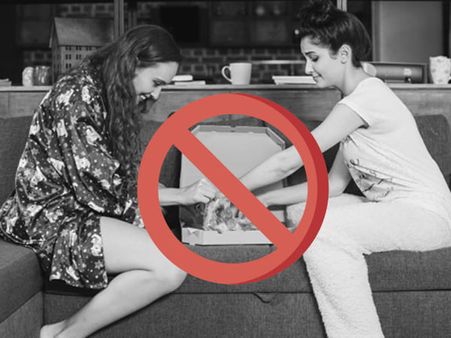
Q. Is my family at a risk of contracting COVID-19 infection from me?
A. To prevent the risk of spreading the virus to your family, maintain distance by separating yourself from family members and animals that live in your home. Avoid close contact with your pet and family members and do not share food items, utensils, dishes, drinks, towels and bed linen with them. Wear a face mask throughout the day and wash your hands frequently.

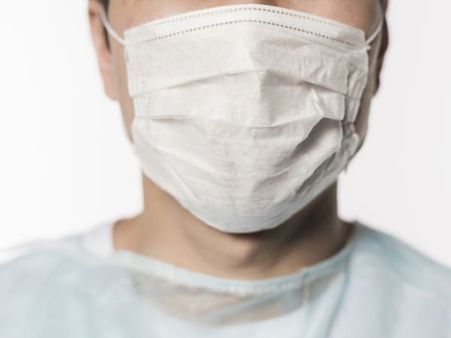
Q. What are the other ways to protect my family from coming in contact with COVID-19 and how can they help protect themselves?
A. There are many ways to help limit their exposure to the virus, these include the following:
- Family members should stay in a different room and if that's not possible, maintain a distance of six feet from the sick person.
- One family member who is in good health and has no underlying conditions should take care of the patient.
- Practice hand hygiene before and after you take care of the patient, before and after preparing food, before eating and after using the toilet.
- Use disposable paper towels to dry your hands after washing it.
- A caregiver should wear a mask while taking care of the patient.
- After usage, remove the mask by untying it instead of touching the front of the mask. Wash hands immediately with soap and water.
- Avoid direct contact with bodily fluids, blood and stool of the patient. Use disposable gloves and mask when handling stool, urine and other waste.
- Clean and disinfect surfaces, bathroom and toilet surfaces at least once daily.
- Wear a mask and gloves while cleaning surfaces or handling clothing or bedding of the patient.
- Any surface that has become soiled with respiratory secretions or other bodily fluids should be cleaned with soap or detergent and water and then disinfect with a regular household cleaner.

Q. How long should I be in self-quarantine?
A. You should be in self-quarantine until your doctor and state and local health departments instruct you otherwise. COVID-19 patients should remain in self-quarantine until the risk of secondary transmission to others is thought to be low.
The
WHO
recommends
COVID-19
patients
who
are
taken
care
at
home
to
remain
in
self-isolation
until
they
are
tested
negative
using
PCR
testing
done
twice
from
samples
collected
at
least
24
hours
apart.
Patients
are
advised
to
stay
in
self-isolation
for
an
additional
two
weeks
after
the
symptoms
resolve.
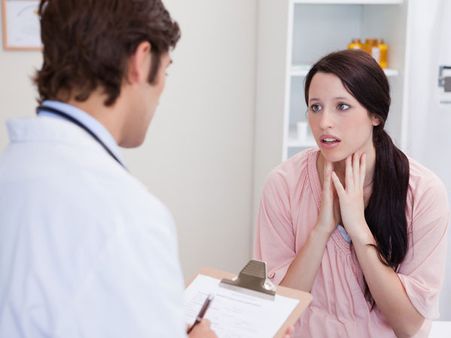
Q. What steps should I take if I have come in direct contact with the patient?
A. Notify the doctor or your health care provider that you are showing symptoms of coronavirus, if you are travelling to the hospital wear a mask, practice hand and respiratory hygiene and keep a distance of six feet from others while you are in the hospital.
-
 healthCOVID Surge In India: Do You Need A COVID-19 Booster Shot?
healthCOVID Surge In India: Do You Need A COVID-19 Booster Shot? -
 disorders cureCommon COVID Symptoms In Fully Vaccinated Individuals: What You Should Know
disorders cureCommon COVID Symptoms In Fully Vaccinated Individuals: What You Should Know -
 wellnessMild COVID Linked To Life-Threatening Blood Clots, Increased Risk Of Cardiovascular Disease; Study
wellnessMild COVID Linked To Life-Threatening Blood Clots, Increased Risk Of Cardiovascular Disease; Study -
 wellnessCOVID-19 Variants In India: New COVID Variant May Pose Threat To Elderly People
wellnessCOVID-19 Variants In India: New COVID Variant May Pose Threat To Elderly People -
 basicsCovid-19 Linked To Early Onset Of Periods: What You Need To Know
basicsCovid-19 Linked To Early Onset Of Periods: What You Need To Know -
 wellnessCOVID XBB Variants Of Omicron In India: What You Should Know
wellnessCOVID XBB Variants Of Omicron In India: What You Should Know -
 disorders cureNew Omicron Subvariant BQ.1 Detected In Maharashtra: What You Should Know
disorders cureNew Omicron Subvariant BQ.1 Detected In Maharashtra: What You Should Know -
 disorders cureOmicron BF.7 In India, Risk Of Fresh Wave During Diwali: What You Should Know
disorders cureOmicron BF.7 In India, Risk Of Fresh Wave During Diwali: What You Should Know -
 wellnessCoronavirus Residues Might Be Causing Long COVID: New Study
wellnessCoronavirus Residues Might Be Causing Long COVID: New Study -
 wellnessCentury-Old TB Vaccine Could Be Effective Against Covid-19 And Other Infections: New Study
wellnessCentury-Old TB Vaccine Could Be Effective Against Covid-19 And Other Infections: New Study -
 disorders cureCovid-19 Patients At Risk Of Neurological & Psychiatric Conditions Two Years After The Infection: New Study
disorders cureCovid-19 Patients At Risk Of Neurological & Psychiatric Conditions Two Years After The Infection: New Study -
 wellnessCOVID In Smokers: An Expert Explains
wellnessCOVID In Smokers: An Expert Explains


 Click it and Unblock the Notifications
Click it and Unblock the Notifications



